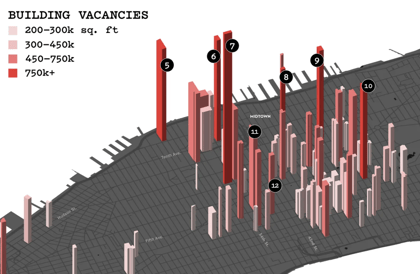What's happening to that empty building? - #346

For about a month, off and on, we've had a plumber in our basement. Between his work, with all its noise and debris, and the Tetris-like reshuffling of our basement's stuff, the most notable result of the construction, thus far, has been me taking the train to HubSpot's office in Cambridge most days. We should also emerge with a new furnace.
Riding the train brings me back: I was a near-daily train rider from the winter of 2017 through the beginning of 2020. But East Cambridge is a lot different. There are a handful of formerly bustling office buildings sitting empty. The one across the way is being turned into lab space. On its first floor, there's no signs of life in the vacant restaurant spaces. The upper stories of the mall on the other side of the canal are being adapted into office, event, and living space. That's right: you could get a condo where the Sears used to be, just a few steps away from Lids.
The changes aren't surprising: while offices are empty, the area is still quite expensive. There have been a ton of trend-pieces about the future of city cores and about urban real estate in general. I've even linked to a few of them. But this week's reading is different. Instead of hand-wringing or imagining, NY Mag sat down with one of Manhattan's commercial real estate owners to learn what the people making the decisions are thinking about empty office buildings.
Reading
New Glut CityThe city's mega-office landlords are panicking, pivoting, and shedding what's worthless. One opens his books. |
|
